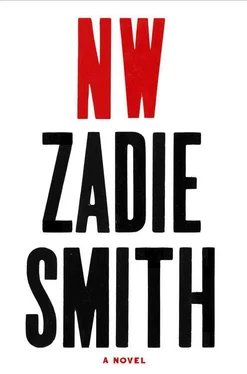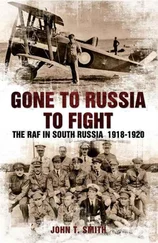69. The invention of love: part one
Frank was not at the bar or anywhere else in view.
70. Partings
On the bus back to the coach station, after what had been, let’s face it, a significant visit, perhaps even approaching the status of a dramatic event, Leah Hanwell said, rather sheepishly: “Hope it was all right, me disappearing. Least you and Rodders got the room back,” and this was all that was said that day about Leah Hanwell’s night with Alice Nho, nor did Natalie Blake mention the fact that she had not asked Rodney to come to her room that night and never again would do so. The bus started to climb what felt like a vertical hill. Natalie Blake and Leah Hanwell were pressed back in their seats and against each other. “Really good to see you,” said Leah. “You’re the only person I can be all of myself with.” Which comment made Natalie begin to cry, not really at the sentiment but rather out of a fearful knowledge that if reversed the statement would be rendered practically meaningless, Ms. Blake having no self to be, not with Leah, or anyone.
71. Helping Leah get her heavy rucksack up the steps to the coach
Natalie Blake had an urge to tell her friend about the exotic brother she had seen in Kirkwood’s class. She said nothing. Quite apart from the fact that the doors were closing she feared what, precisely, the gaping socio-economic difference between Frank De Angelis and Rodney Banks might say to her friend Leah Hanwell about her, Natalie Blake, psychologically, as a person.
72. Romance languages
Many of the men Natalie Blake became involved with after Rodney Banks were as socio-economically and culturally alien to her as Frank was, and were far less attractive, but still she didn’t approach Frank, nor did he approach her, despite their keen awareness of each other. A poetic way of putting this would be to say:
“There was an inevitability about their road toward each other which encouraged meandering along the route.”
73. The sole author
More prosaically, Natalie Blake was crazy busy with self-invention. She lost God so smoothly and painlessly she had to wonder what she’d ever meant by the word. She found politics and literature, music, cinema. “Found” is not the right word. She put her faith in these things, and couldn’t understand why — at exactly the moment she’d discovered them — her classmates seemed to be giving them up for dead. When asked by other students about Frank De Angelis — she was not the only person who had noted their fundamental compatibility — she said that he was too full of himself and vain and posh and racially confused and not her scene at all, and yet the silent and invisible bond between them strengthened, for who else but Frank De Angelis— or someone exactly like Frank De Angelis— could she ask to accompany her on the strange life journey she was preparing to undertake?
74. A sighting
Five rows in front at the midnight showing of Black Orpheus, looking up at his doppelganger.
75. Activism
Natalie was cycling down University Walk when a young man she was sleeping with stood in her path, blocking her way. He had a frantic look about him and at first Natalie thought he was preparing to announce his undying love. “Have you got half an hour?” asked Imran, “There’s something I want you to see.” Natalie wheeled her bike round to Woodland Road and chained it up outside Imran’s halls of residence. In his small bedroom there were two other girls from their year and a grad student she didn’t know. “This is the action group,” said Imran, and put a video into the player. Of course, Natalie was aware of the Bosnian conflict, but it would be fair to say that the war had not been uppermost in her mind. She told herself this was because she had no television and spent most of her time in the library. Similarly, two years earlier the existence of a country called “Rwanda” and the reality of its genocide had come to her simultaneously, in a single newspaper article. Now she sat cross-legged and watched the soldiers marching and listened to the recorded speech of the crazed man screaming, and read the subtitles about racial purity and a fantasy place called “Greater Serbia.” This had just happened? Just now? At the end of history? She thought of all the times she and Leah had asked themselves — for the sake of a thought experiment — what they would have done, had they been in Berlin, in 1933. “We’re going to drive an ambulance of supplies to Sarajevo,” said Imran, “to help with the reconstruction. You should come.” To do so would break the first commandment of Natalie Blake’s family: do not put thyself in unnecessary physical peril.
For the next several weeks Natalie threw herself into the organization of this trip, and made love to Imran, and thought of this period, years later, as representing a sort pinnacle of radical youthful possibility. Of sex, protest and travel, fused. That she never actually went on the trip seemed, in memory, some how less important than the fact that she had fully intended to go. (A quarrel with Imran, a few days before. He didn’t call, so she didn’t call.)
76. Abandon
Natalie Blake took out a large student loan and made a point of spending it only on frivolous things. Meals and cabs and underwear. Trying to keep up with “these people” she soon found herself with nothing again, but now when she put a debit card in the slot and hoped that five pounds would come out, she did it without the bottomless anxiety she’d once shared with Rodney Banks. She cultivated a spirit of decadence. Now that she had glimpsed the possibility of a future, an overdraft did not hold the same power of terror over her. The vision Marcia Blake had of such people, and had passed on to her daughter, came tumbling down in a riot of casual blaspheming, weed and cocaine, indolence. Were these really the people for whom the Blakes had always been on their best behavior? On the tube, in a park, in a shop. Why? Marcia: “To give them no excuse.”
77. A Sighting
Dressed as Frantz Fanon on a staircase at a party at which Natalie herself was dressed as Angela Davis. His costume consisted of a name-tag and a white coat borrowed off a medical student. Natalie had made more effort: a dashiki and a combed out ’fro, that did not stand up well due to years of damage with a hot iron. The costume party was in the shared house of four philosophy students and the theme was Discourse Founders. His date came as Sappho.
78. A theory about the tracking of Michelle Holland
It is perhaps the profound way in which capitalism enters women’s minds and bodies that renders “ruthless comparison” the basic mode of their relationships with others. Certainly Natalie Blake tracked the progress of Michelle Holland with a closer attention than she did her own life — without ever speaking to her. Besides Rodney, Michelle was the only other person from Brayton in the university. A math prodigy. She did not have the luxury of mediocrity. Raised in the brutal high-rise towers of South Kilburn, which had nothing to recommend them, no genteel church culture, none of the pretty green areas of Caldwell nor (Natalie presumed) the intimate neighbors. What could she be but exceptional? Father in jail, mother sectioned. She lived with her grandmother. She was sensitive and sincere, awkward, defensive, lonely. It was Natalie’s belief that she, Natalie Blake, didn’t have to say a word to Michelle Holland to know all of this — that she could look at the way Michelle walked and know it. I am the sole author. Consequently Natalie was not at all surprised to hear of Michelle’s decline and fall, halfway through the final year. No drink or drugs or bad behavior. She just stopped. (This was Natalie’s interpretation.) Stopped going to lectures, studying, eating. She had been asked to pass the entirety of herself through a hole that would accept only part. (Natalie’s conclusion.)
Читать дальше











